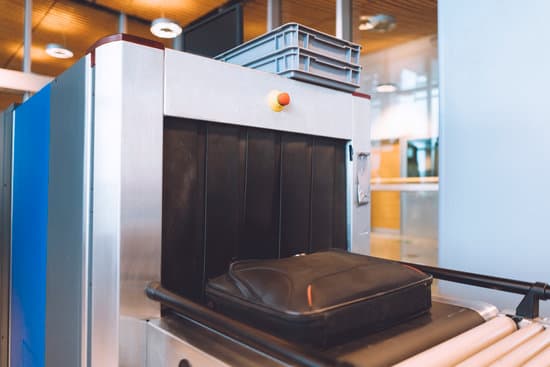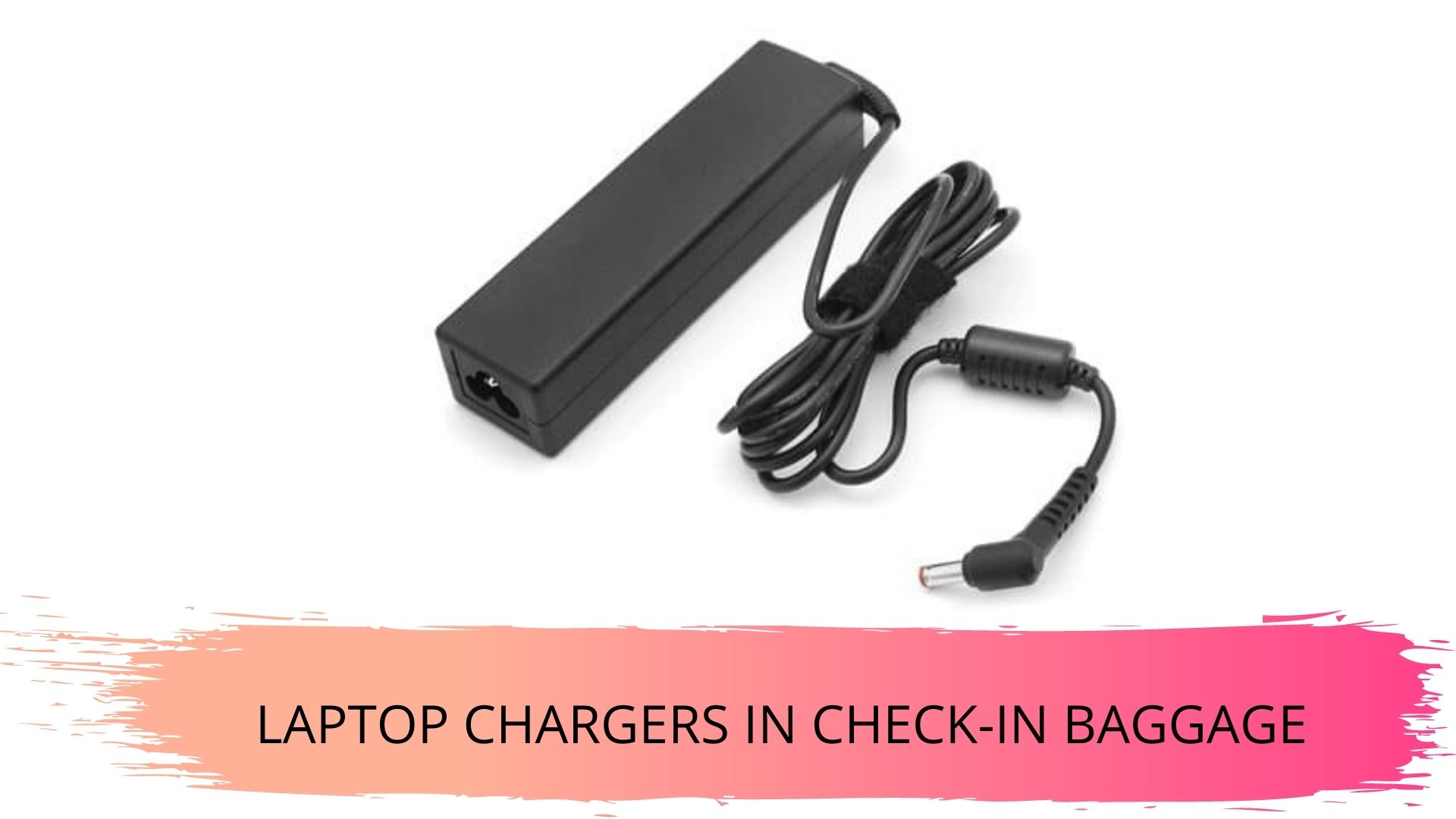Airlines have no reason to keep laptop chargers out of check-in baggage. However, is it the best place to keep them? Well, it depends on the situation and the type of charger. All in all, chargers are easier to replace than laptops.
Are Laptop Chargers Allowed in Check In Baggage?
You can keep laptop chargers in check-in baggage. However, some chargers have batteries and most people know that batteries are risky. You cannot keep them in check-in baggage. They should be kept in your carry-on bag, especially lithium-ion batteries.
Therefore, if your laptop charger has batteries, airport security may prevent you from keeping the charger in check-in baggage.
According to the TSA, this is also true for phone chargers.
This isn’t a guarantee. Chargers with batteries are somewhat rare. Not only are some airports unlikely to notice the presence of a battery but even if they did, they might dismiss the threat they pose altogether.
Every airline has a website that you can check to determine whether or not they will permit you to keep your charger in the check-in baggage. If their rules are vague, reach out to them. Ask for clarification. You don’t want to settle the questions surrounding your laptop charger on the day you are supposed to fly. Settle the matter beforehand.
So you should pay closer attention to the place where you store the laptop, not to mention how you store it. Additionally, chargers normally accompany their laptops. A place that is safe for your laptop is also safe for the charger. The question of laptops and chargers is straightforward because the rules that most airports follow are quite clear. However, where the passenger is concerned and what is expected from them, things are somewhat complicated.
Why You Can’t Keep Batteries in Check-in Luggage?
Lithium-ion batteries are a safety hazard. They are capable of malfunctioning, suffering breaches, and producing short circuits that can cause fires. If the situation isn’t resolved in time, the fire can engulf the cargo hold, putting the plane in jeopardy.
According to Consumer Reports, rules that prohibit passengers from keeping batteries in check-in baggage are more of a cautionary measure rather than a strategy to prevent a clear and present danger. Most people use gadgets with lithium-ion batteries every single day.
And yet, the number of batteries that malfunction to the point of causing a fire is tiny. In that regard, the chances of a battery in the cargo hold malfunctioning and causing a fire are very small. However, because a fire on a flying plane can have disastrous results, most airlines are not willing to take the risk.
This is why they typically prohibit passengers from keeping laptops in check-in baggage. The battery in a laptop is also a fire hazard.
Where Can You Keep Laptop Chargers?
The best place to keep a charger is in your handheld luggage. This is especially true if it has a battery and you don’t know for certain whether or not your airline will permit you to keep it in the check-in baggage.
Why Should You Keep Your Laptop Chargers in Check-In Baggage?
While you are allowed to keep traditional wired chargers in check-in baggage, it isn’t a good idea. Most airlines expect their passengers to keep electronic devices in their handheld luggage. They do this for several reasons:

1). Security
Fonehouse doesn’t trust the cargo hold. Your charger is just as likely to go missing. This is why airlines don’t provide strict assurances where the safety of your luggage is concerned. Airports are too busy. They cannot watch your luggage all the time.
And if you choose to store sensitive electronic devices such as laptops, phones, and chargers in check-in baggage, you could lose them.
2). Mishandling
People are not convinced that you can trust airlines to handle your luggage with care. This is another reason that compels airlines to encourage passengers to keep electronic devices in their hand luggage. Once your valuables enter the cargo hold, anything can happen to them.
And if they break, you shouldn’t expect the airline to replace them. The only way to protect them from harm is to keep them on you at all times during your flight. That includes the laptop and its chargers.
3). Power
You cannot use your charger if it is stuck in the cargo hold. Don’t be so quick to assume that your laptop won’t require charging during your journey. First of all, you need to charge your electronic devices before you go through the security of certain airports.
According to Express, this is a requirement in British Airports. Airport security has no way of knowing for certain that your laptops and phones are just electronic devices. Terrorists have been known to disguise bombs as ordinary items.
For that reason, airport security in Britain expects passengers to switch their devices on to prove that they are real. This requirement is becoming more common in other countries. Depending on the number of checkpoints you have to go through and the nature of the search, you may deplete your battery before you reach the plane.
As such, you are better off keeping a laptop charger on hand. Admittedly, a lot of planes don’t have charging stations, to begin with. In such cases, you should carry an extra battery, which should also stay in your hand luggage.
Can You Keep Power Banks in Check-in Baggage?
The TSA prohibits passengers from keeping power banks in check-in baggage, especially if they have lithium-ion batteries. You should keep them in carry-on bags just like power chargers (chargers with batteries).
Conclusion
As you can see, laptop chargers are a bit of a minefield. They are not necessarily a big security threat. Airport security won’t pay them that much attention. You can keep them wherever you choose. However, if your chargers have batteries, you should keep them in your handheld luggage. Not only are they safer but they are within easy reach. You never know when you might need them.

